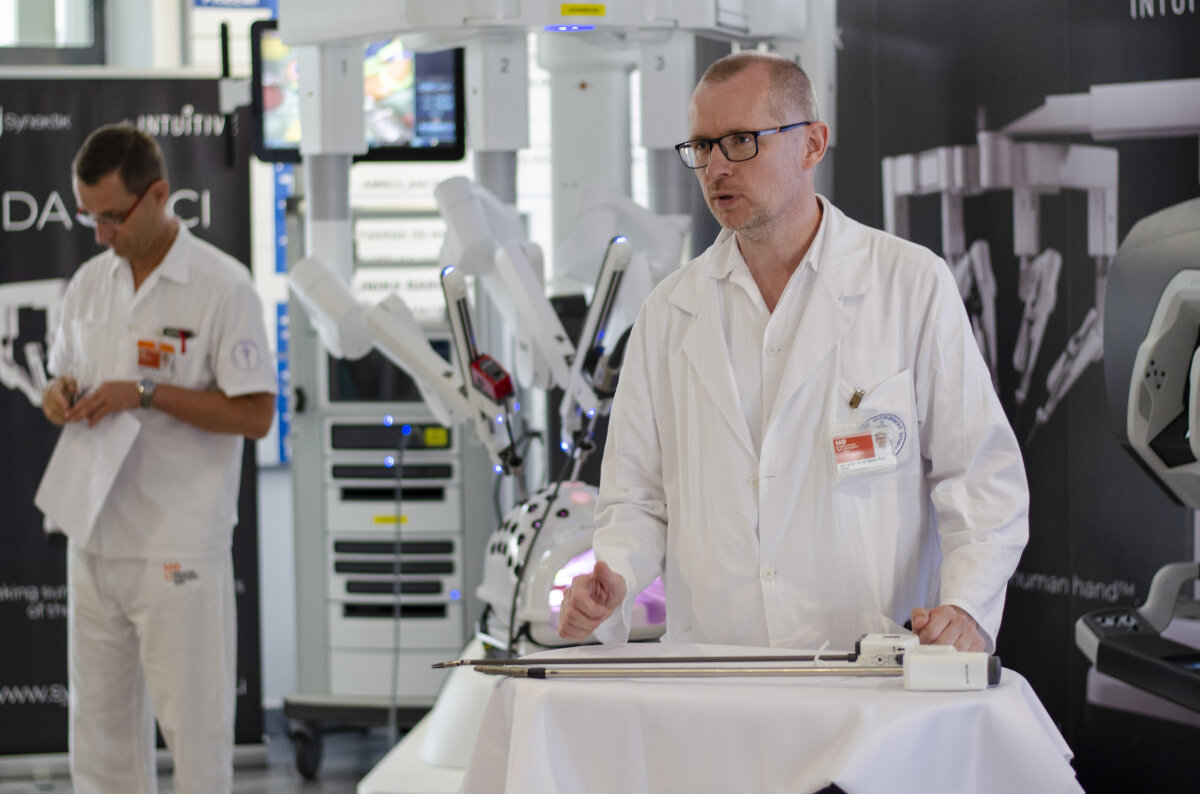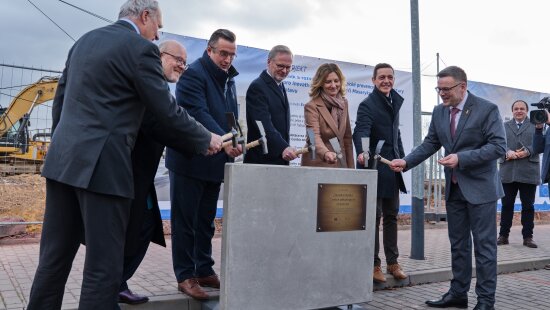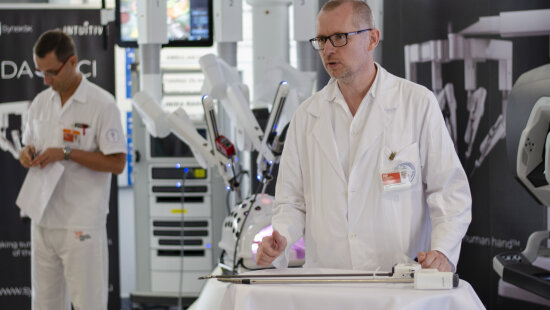News

The Masaryk Memorial Cancer Institute celebrates the 1000th operation on the da Vinci robotic system
Compared to other surgical approaches, robotic surgery offers a number of benefits for both patients and surgeons. Thanks to the robotic system, surgeons can perform complicated procedures more gently and efficiently. In the MMCI, it is mainly used for urological, surgical and gynecological operations.
Basic advantages of operative procedures using a robotic system include better tolerance and minimal traumatization (greater gentleness to tissues), less postoperative pain, earlier return to normal life, lower percentage of purulent complications, shorter incapacity for work and better cosmetic effect.
The robotic operating system also facilitates the work of doctors and operators, who can manage the operation from a comfortable position and do not have to bend over the operating bed for several hours. While during a laparoscopic procedure, surgeons only have the option of a two-dimensional image, the robotic system enables a three-dimensional image. The main advantage is the higher precision and range of movements of the operator, which leads to less damage to the surrounding tissue, and thus an even shorter recovery time and a less visible scar. In practice, it looks like the surgical instruments are held by a robotic unit controlled by the operator.
Mini-invasive surgery is a set of medical procedures that are performed using only short incisions, thereby minimizing post-operative complications and pain. While in classic surgery a relatively large incision is made so that the operated part is clearly visible (so-called "open surgery"), in minimally invasive procedures only an opening is created so that a probe with a camera and the necessary instruments can pass through it.
Free Cancer Helpline
Monday – Friday from 7.30 AM to 3.00 PM
(+420)800 222 322


















